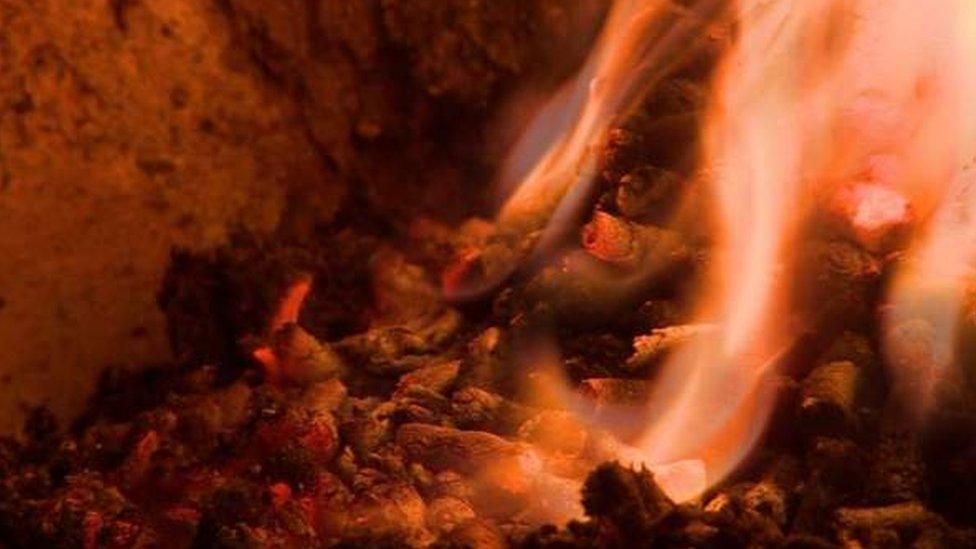RHI inquiry: The scandal that sent Stormont up in smoke
- Published
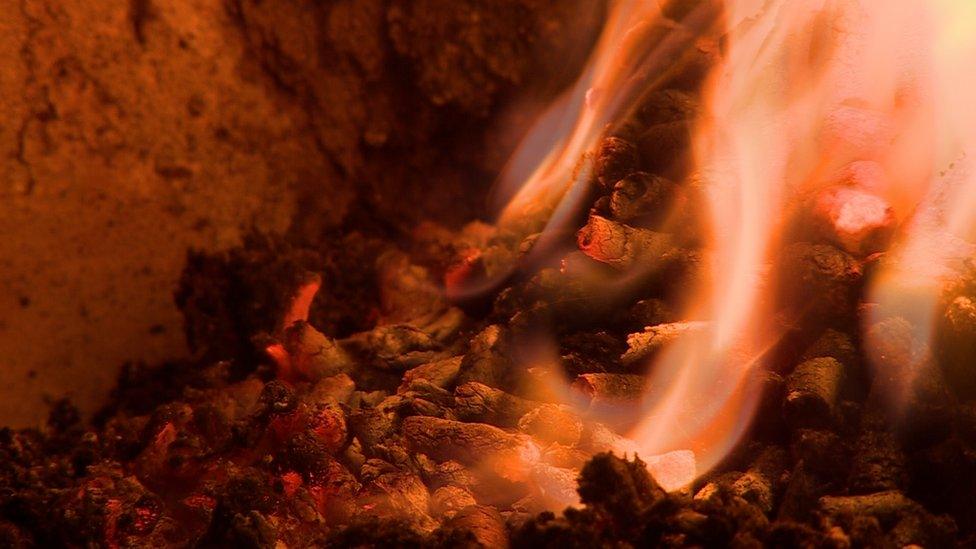
It is the financial scandal that had the potential to cost Northern Ireland taxpayers almost half a billion pounds and left devolution in tatters.
Before late 2016, the Renewable Heat Incentive (RHI) scheme was relatively unheard of.
It was set up in 2012 to boost uptake of eco-friendly heat systems - but a flaw meant claimants could exploit the scheme for huge profits.
A December 2016 BBC programme shone a harsh light on RHI for the first time.
What happened after the BBC programme aired?
By late 2016, the RHI scheme had been closed down - but the damage to the public purse had already been done.
A bill of £490m was waiting, and as media outlets focused in, relations between Northern Ireland's two biggest political parties hit an all-time low.
The Democratic Unionist Party (DUP) and its ministers had been in charge of the department that set up the scheme and oversaw its closure in February 2016.
Its partner-in-government for almost 10 years, Sinn Féin, became unhappy with how the DUP handled the political storm in the days that followed the BBC Spotlight programme.
Their coalition collapsed just weeks later in January 2017 and that month a public inquiry into the scheme was announced.
Remind me, why was the inquiry was set up?
Because of the unfolding political and public pressure for answers about how such a seemingly bad scheme had been created in the first place.
While weeks of controversy swirled in late 2016 and early 2017, there still wasn't clarity over who had approved key RHI decisions- or why.
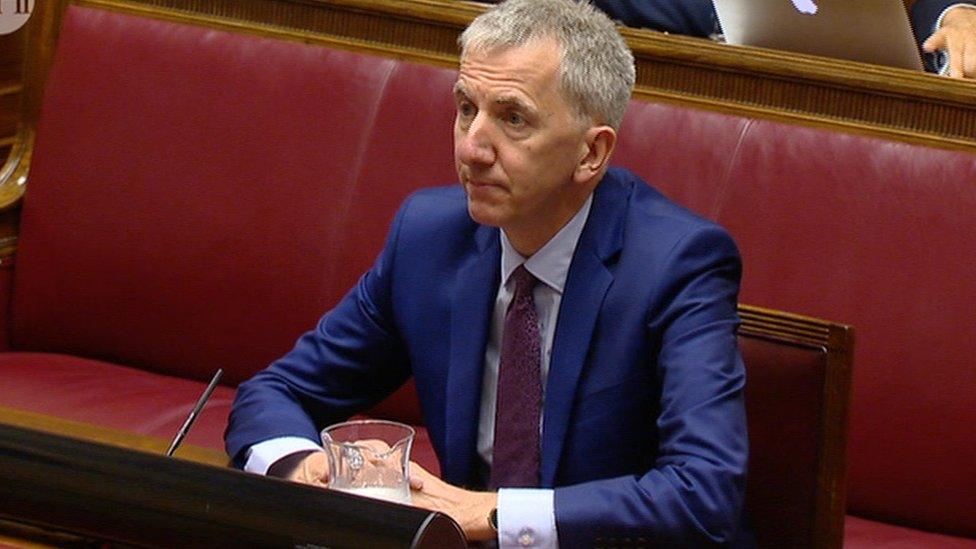
Máirtín Ó Muilleoir rejected DUP claims that his party had engaged in leaking information to the media about proposals to cut the costs of the RHI scheme in early 2017
On 19 January 2017, the finance minister Máirtín Ó Muilleoir said that a public inquiry would be set up.
It would be a three-person panel, let by retired Court of Appeal judge Sir Patrick Coghlin, with oral hearings beginning in November 2017.
What has the inquiry revealed?
With more than a million pages of evidence and 111 days of oral hearings, it's safe to say the inquiry's lawyers have been meticulous in leaving no biomass boiler unturned.
The public inquiry's powers to compel witnesses to appear also meant some of the star players had to face days of difficult questioning.
The one word that cropped up time and again during evidence was "failure".
The Northern Ireland civil service admitted "multiple failings" in its handling of complex policy issues, like energy.
Its staff simply did not have the expertise: instead, general civil servants were running a highly technical scheme and didn't really understand it.
Some of them didn't see the most obvious flaw until the scheme had already been running for several years, despite red flags from whistleblowers.
At one point, just one person was looking after the introduction of a brand new policy that had a huge budget.
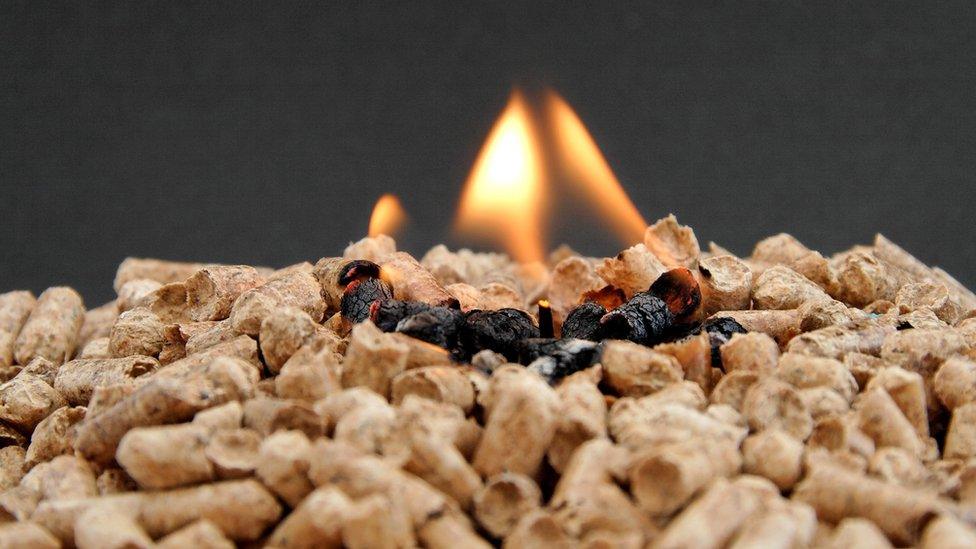
The RHI scheme was set up in 2012 to encourage uptake of eco-friendly heat systems
There are questions too, about why Northern Ireland sought to differ its RHI scheme than one in Great Britain, which had been established already and contained measures to ensure costs were capped.
And throughout the lifetime of the scheme, some people seemed prepared to accept what others were telling them at face value; that it was a successful scheme and any overspend would be covered by the Treasury in London (we know now that wasn't the case).
The politicians involved have questions to answer as well.
About their attention to detail when it came to difficult policy areas, and whether they were more interested in having power, than taking responsibility for their actions.
Some politicians were accused of seeing their position as a photo opportunity, rather than getting on the job they'd been elected to do.
And the inquiry heard many times that right across Stormont, there was a disregard for taking minutes of meetings: sometimes to frustrate Freedom of Information requests, other times notes were later altered by officials and advisers.
Let's not forget about those who applied to the scheme.
While many signed up in good faith to a government initiative that aimed to boost energy efficiency, some saw the potential to make money and actually use heat in a completely inefficient way.
That might have been legal, but it certainly wasn't what the spirit of the scheme intended.
Who is likely to face the most criticism in the end?
Undoubtedly, the civil service has suffered massive reputational damage.
On repeated occasions, the inquiry heard how there was an ever-changing turnover of staff looking after RHI, and of a lack of communication between various government departments during attempts to bring its budget under control.
But some of the more interesting revelations have centred on the politicians, namely the DUP, the party at the centre of the story.
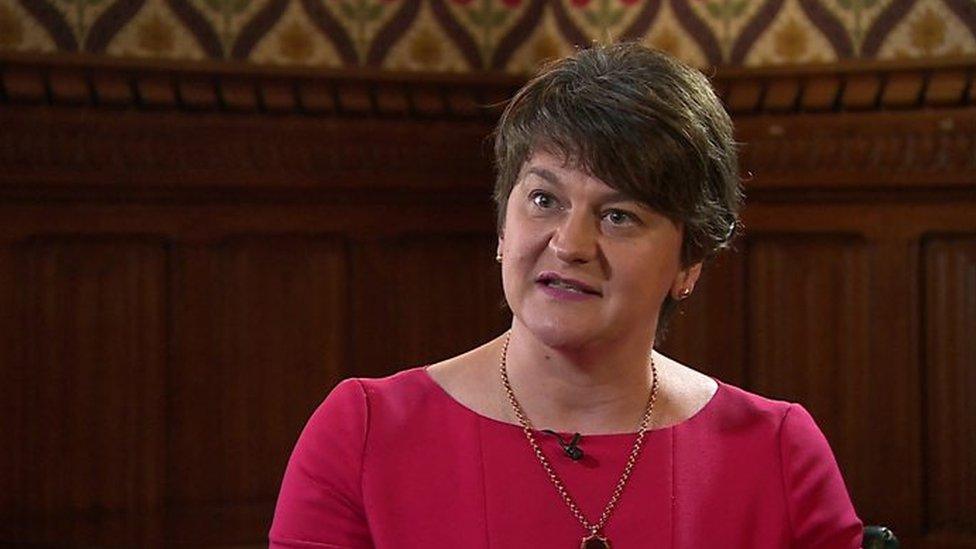
Arlene Foster was enterprise minister when the botched scheme was launched
Its leader, former first minister Arlene Foster, was enterprise minister when the scheme was set up and told the inquiry she didn't read the regulations before she brought them to the assembly.
There's also been an insight into the sometimes shadowy nature of how Stormont operated; the hierarchical world of unelected special advisers and the power they wielded; how codes that set standards for public life were ignored to get business done - the "realpolitik" that had to be done because of the nature of Northern Ireland's mandatory coalition system.
One witness even described it as a "grubby world".
The panel expressed shock on many occasions that rules had been so openly flouted for the sake of political interests.
What is the outcome likely to be?
The question many people have asked about this inquiry is will anyone be sent to jail?
To be clear, the legislation setting out the inquiry's terms of reference means the panel can't make a ruling on criminal or civil liability.
The Public Prosecution Service also said anything a witness raised in evidence could not be used against them in a future criminal case, or be used as grounds on which to take such a case: that was to ensure no-one had an excuse not to co-operate.
The exemptions don't apply to anyone who either lied to the inquiry or didn't give evidence to it, but at its core, the inquiry is attempting to bring all the facts to light and determine the truth behind the scandal.
The panel has often asked witnesses what lessons they think need to be learned to ensure nothing of a similar magnitude can happen ever again.
Furthermore, while there was a huge public outcry about sums of money some firms were earning from the scheme, for the most part what they were doing was entirely legal: the ethics of what they did is another matter.
Claims that farmers were heating empty sheds seem to have been anecdotal, with no detailed evidence to back them up.
When will the findings be published?
While oral evidence finished last Friday, the inquiry has a couple of summing up sessions before the panel rises to consider everything it's heard.
It is unlikely to report back before Easter 2019, possibly even later, given the volume and density of the evidence.
The most up-to-date figure for the inquiry's cost is about £6.5m, but this is likely to rise still, given the sheer amount of resources and time devoted to its work.
The general consensus seems to be that, as it stands, devolution is unlikely to return for some time yet - possibly until this report is published, and fingers of blame can be pointed or those who were criticised before the inquiry began, can say they've been exonerated.
What the inquiry panel ultimately decides is hard to predict.
But what it's uncovered is unlikely to restore public confidence in a political system that was sent up in smoke nearly two years ago - and the flames have yet to be fully extinguished.
- Published7 November 2017

- Published11 July 2018
